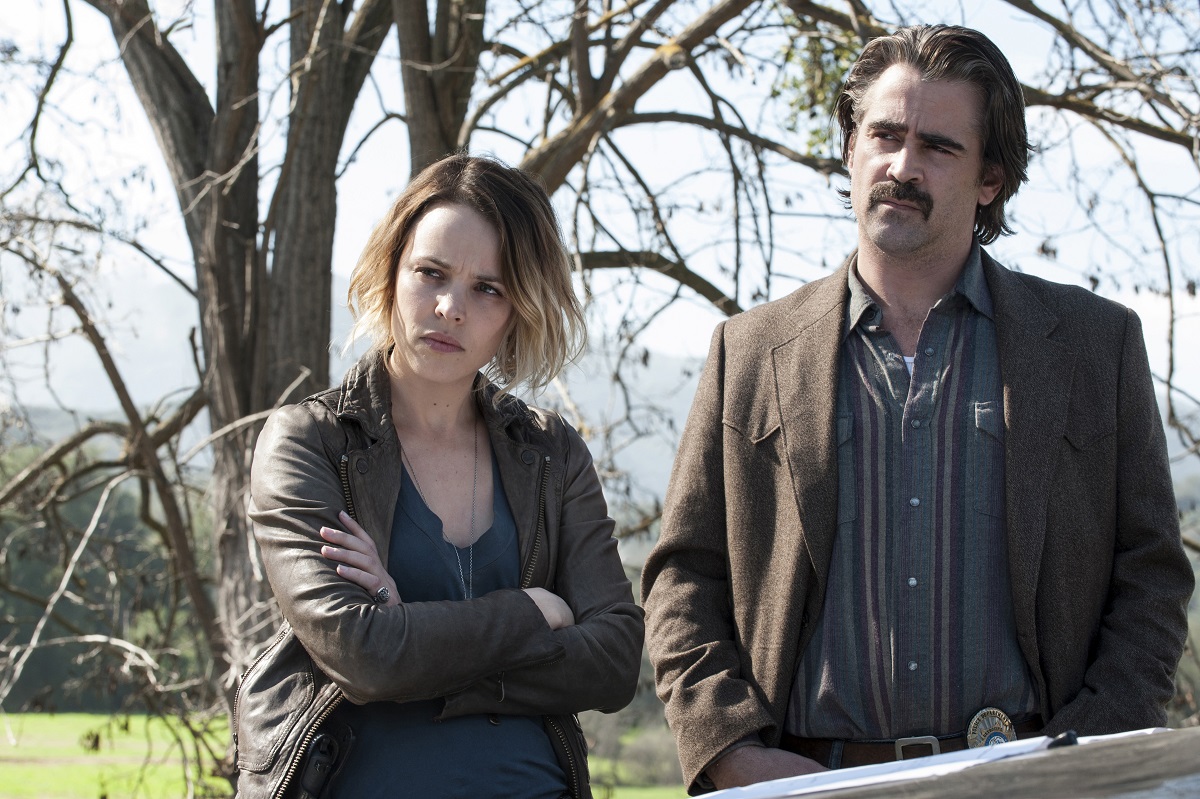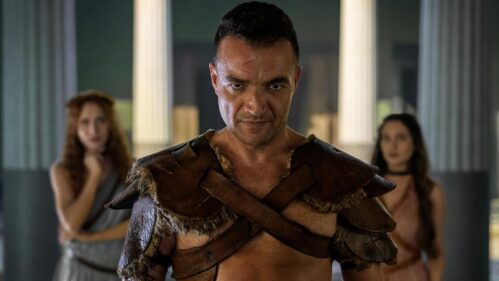Let’s cut right to what everybody wants to know: the second season of “True Detective,” at least based on the three episodes I’ve seen, is good.
In fact, parts of it are quite good. Is it the breakthrough, landmark
television of the first season? No. But it is a rock-solid crime drama with
film caliber production values, intriguing plotting and great performances. The
problem for some viewers will be that the ghost of Rust Cohle hangs heavy in
the air of this iteration of “True Detective,” not only inherently inviting
comparisons to last year’s award winner but often because writer Nic Pizzolatto
sometimes sounds like he’s trying to replicate the grizzled philosophies spouted
by Matthew McConaughey. Nearly devoid of humor—there are some cops
with lives that aren’t completely full of despair, people—“True Detective” this
season could be too depressing and too familiar for some viewers, but the show improves
with each episode, especially as it gets deeper into the corrupt atmosphere of
California and further away from the encompassing swamps of Louisiana.
There’s a reason Pizzolatto and new director Justin Lin (“Fast
Five”) keep calling back to overhead shots of the intertwined freeways of
California in the first two episodes of the season. “True Detective” this year
is about lives that intersect, sometimes tragically, and then continue on their
way. The structure might be off-putting to start given that Pizzolatto and Lin
open with their quartet of lead characters in different spheres and mostly different
narrative arcs for nearly an hour. It’s not really until they get together at the
end of episode one and more in episodes two and three that the show starts to
click.

Colin Farrell plays Ray Velcoro, a cop in free fall. His
family life has fallen apart and IA could destroy him with just the slightest
glance at his career. His wife (Abigail Spencer) wants to take their son as far
away from Ray as possible, especially after the tough cop goes too far to
protect his boy. Most importantly, Velcoro has been in the back pocket of a nefarious
businessman name Frank Semyon (Vince Vaughn) for over a decade now. Years ago,
Ray needed Frank to take care of some dirty business after his wife was beaten
and raped, and now he’s been under this thumb ever since.
Frank is in the middle of one of the biggest real estate deals
of his life when the City Manager with whom he’s been negotiating goes missing.
The case will eventually end up on Ray’s desk, but it will also involve a
troubled detective named Ani Bezzerides (Rachel McAdams) and a double-troubled
highway patrol officer named Paul Woodrugh (Taylor Kitsch). Ani has a sister in
the webcam girl business and a father (David Morse) who runs a hippie commune.
Paul has wounds from his time in country and some quasi-suicidal tendencies. There
are echoes of “L.A. Confidential” here in that three people as different as Ani,
Paul and Ray will be forced to work together on a case bigger than the three of
them not unlike Ed Exley, Bud White and Jack Vincennes solved the case of their
lives.
Everyone in the world of “True Detective” traffics in
melancholy. There are times when lines like “I used to want to be an astronaut, but astronauts don’t even go to the
moon anymore” sound like a parody of the first season of “True Detective.”
As the show loosens up a bit in the two episodes after the premiere, and the philosophical
noose isn’t pulled as tight, it improves. There are some dialogue scenes, such
as one between Morse & McAdams in the premiere and McAdams & Farrell in
the second episode, that are truly excellent. Pizzolatto still has a special gift
for illuminating characters as they’re driving somewhere on a case.

The piece is well-cast all around, particularly McAdams,
whose philosophical weariness feels the most rooted in character detail. Ani
still wants to save people, including her sister, but she’s seen so much bad
behavior, both in the name of good and the name of evil, that she may not have
the energy to fight much longer. Vaughn is careful not to overplay the
smooth-talking-guy-in-a-suit routine that could have turned Frank into a cliché.
Farrell also finds ways to avoid the similar clichés of the cop with nothing
left to lose. Kitsch has the least to do in the first trio of episodes, but one
feels like that will quickly change.
Watching season two of “True Detective,” one can’t help but
feel like its relatively lukewarm reception says as much about what we expect
from television in 2015 as it does the quality of the show itself. An event
series like this isn’t just compared to last season’s “True Detective,” but “Mad
Men,” “Breaking Bad,” “The Wire,” “The Sopranos,” etc. As the bar continues to
rise on this arguable golden age of television, we should be wary of dismissing
a program this engaging just because it doesn’t stand with the best of the best.
It still stands pretty damn tall.












